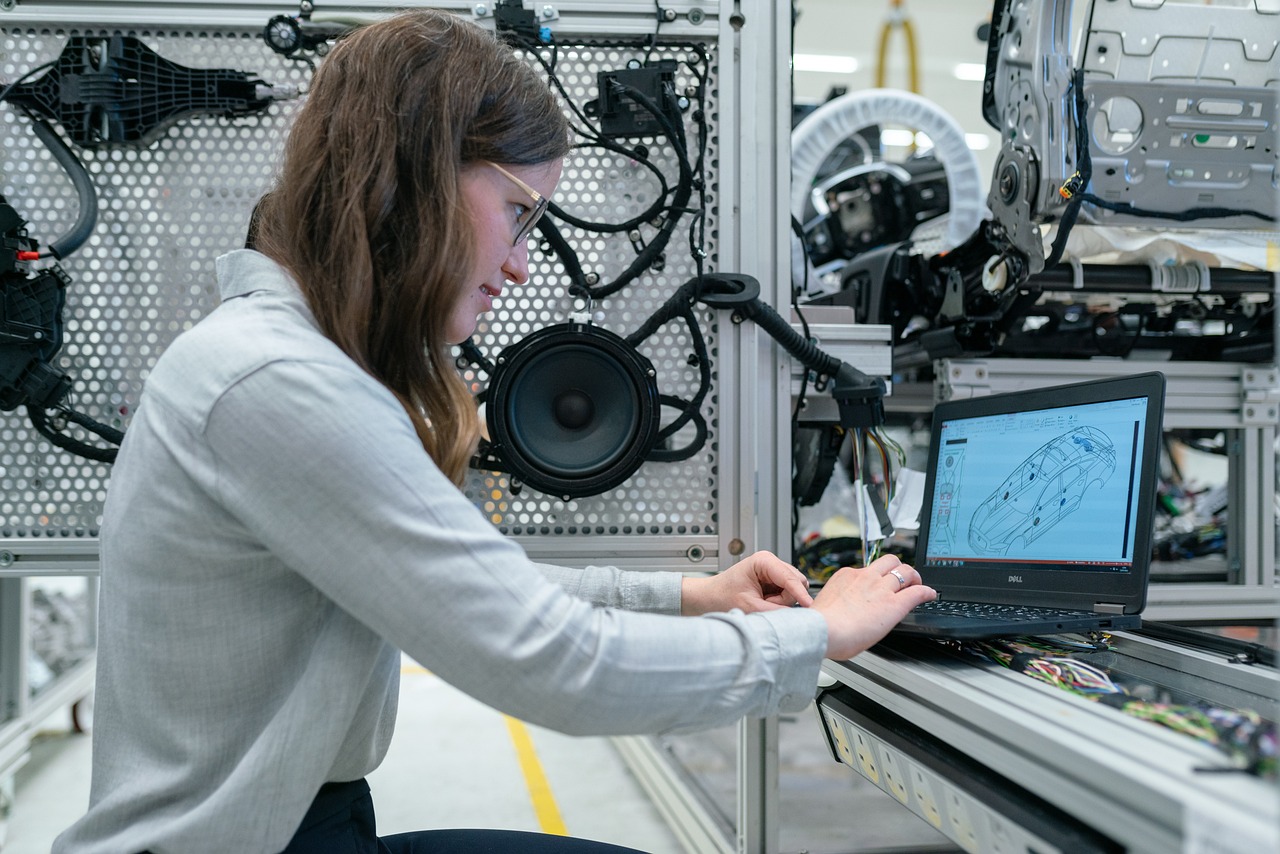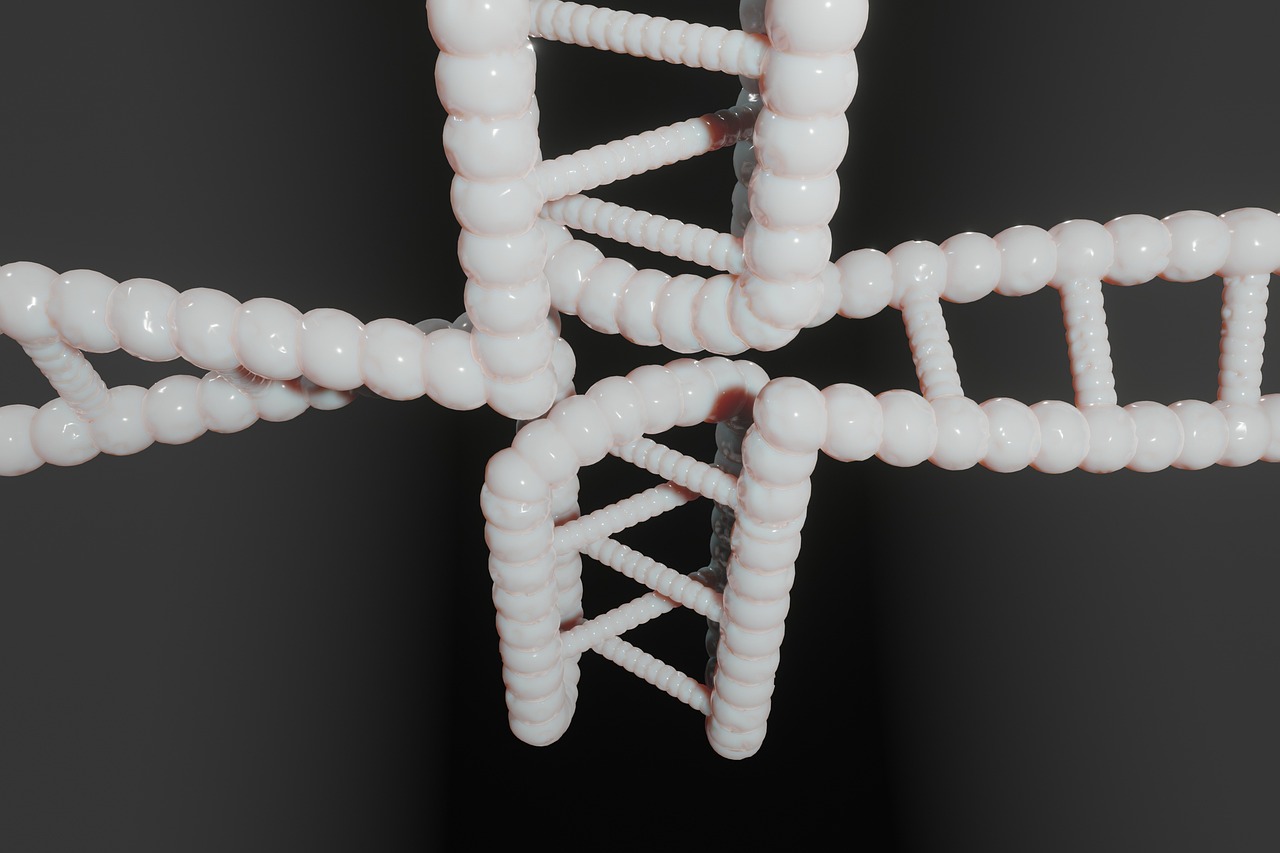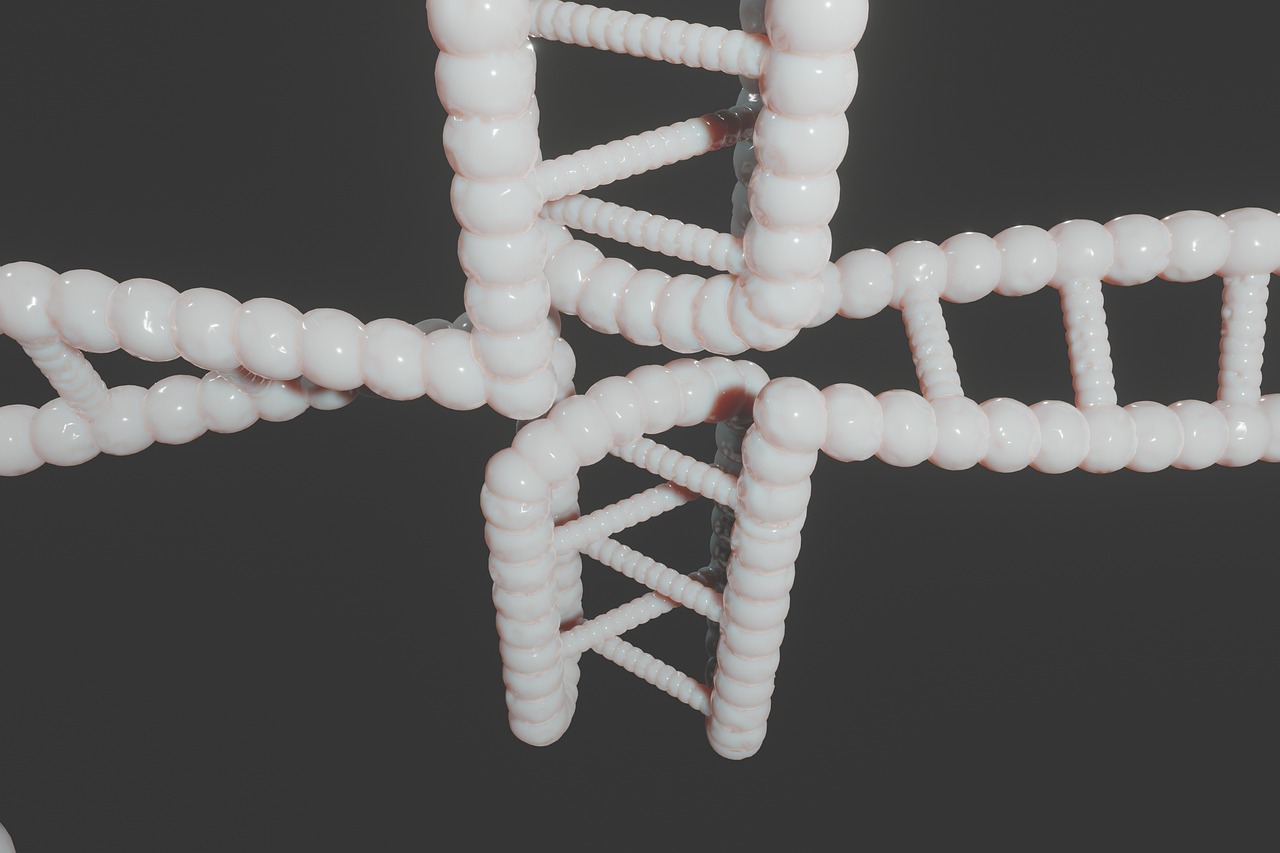The Ethical Boundaries of Genetics
The field of genetics is rapidly evolving, opening doors to remarkable advancements that can transform our understanding of life itself. However, with great power comes great responsibility, and the ethical boundaries surrounding genetics are becoming increasingly complex. As we explore the intricate web of genetic engineering, testing, and modification, we must ask ourselves: where do we draw the line? Are we prepared to navigate the moral landscape that comes with the ability to alter life at its very foundation?
At the heart of this discussion lies the concept of genetic engineering. This powerful tool allows scientists to manipulate DNA, leading to breakthroughs in medicine, agriculture, and even environmental conservation. Imagine being able to eliminate genetic disorders before a child is born or enhancing crops to withstand climate change. It sounds like something out of a science fiction novel, right? But as we stand on the brink of these possibilities, we must consider the ethical dilemmas that arise. What happens when genetic engineering is misused? Could we inadvertently create a world where genetic 'perfection' becomes the norm, leading to unforeseen consequences?
Another crucial aspect of this conversation is genetic testing. While it provides invaluable insights into our health and ancestry, it also raises pressing ethical questions. For instance, how do we protect individuals from discrimination based on their genetic information? Imagine being denied a job or insurance simply because your genetic makeup suggests a predisposition to certain illnesses. This reality is not far-fetched, and it underscores the need for robust privacy protections and ethical guidelines surrounding genetic data.
- What is genetic engineering? Genetic engineering is the direct manipulation of an organism's DNA to alter its characteristics, often used in medicine and agriculture.
- What are the ethical concerns of genetic testing? Ethical concerns include privacy issues, potential discrimination, and the need for informed consent from participants.
- How can genetic data be misused? Genetic data can be misused in various ways, including discrimination in employment and insurance, as well as unauthorized sharing of personal information.
- What are the risks of gene editing technologies like CRISPR? Risks include unintended genetic changes that could have far-reaching consequences for individuals and ecosystems.

Understanding Genetic Engineering
Genetic engineering is a fascinating yet complex field that involves manipulating an organism's DNA to achieve desired traits or outcomes. Imagine it as a high-tech toolkit where scientists can edit the genetic code of living beings, much like a word processor allows you to modify text. This technology has applications that range from medicine to agriculture, sparking a revolution in how we understand and interact with the biological world.
At its core, genetic engineering employs techniques such as CRISPR (Clustered Regularly Interspaced Short Palindromic Repeats), which has made gene editing more accessible and precise than ever before. With CRISPR, scientists can target specific sequences in the DNA and make alterations, whether that means knocking out a gene, inserting a new one, or even repairing faulty genes. This precision is akin to a surgeon performing a delicate operation, where every cut and stitch matters.
However, with great power comes great responsibility. The potential misuse of genetic engineering technologies raises serious ethical dilemmas. For instance, while the ability to edit genes can lead to groundbreaking treatments for genetic disorders, it also opens the door to potential abuses, such as creating "designer babies" or modifying traits for non-medical reasons. This brings us to the question: where do we draw the line? Should we play God, or should we respect the natural course of evolution?
Additionally, the implications of genetic engineering extend beyond individual health. In agriculture, genetically modified organisms (GMOs) have been developed to enhance crop yield, resist pests, and withstand harsh environmental conditions. While these advancements can help address food security, they also raise concerns about biodiversity and the long-term effects on ecosystems. For example, if a single crop variety dominates the market, it could lead to a lack of genetic diversity, making our food supply vulnerable to diseases.
| Application | Benefits | Ethical Concerns |
|---|---|---|
| Medicine | Treating genetic disorders | Designer babies, consent issues |
| Agriculture | Increased yield, pest resistance | Biodiversity loss, environmental impact |
| Research | Understanding gene functions | Privacy of genetic data |
In summary, while genetic engineering holds incredible potential for improving our lives, it is essential to navigate the ethical landscape carefully. We must consider not only the benefits but also the risks and implications of altering the very fabric of life. As we continue to explore this uncharted territory, the conversation surrounding the ethical boundaries of genetics will become increasingly vital.

The Role of Genetic Testing
Genetic testing has become a significant player in the realm of healthcare, providing individuals with insights that were once thought to be mere science fiction. Imagine having the ability to peek into your DNA and uncover potential health risks or even trace your ancestry back through the generations. Sounds fascinating, right? But with great power comes great responsibility, and this is where the ethical questions start to bubble to the surface.
At its core, genetic testing involves analyzing your genes to identify changes or mutations that could lead to specific health conditions. This can be incredibly beneficial, allowing for early detection and prevention strategies that can save lives. For instance, individuals with a family history of certain diseases can use genetic testing to determine their risk levels and make informed decisions about their health. However, it’s essential to navigate this landscape carefully, as the implications of such knowledge can be profound.
One of the most pressing ethical dilemmas surrounding genetic testing is the issue of privacy. When you undergo genetic testing, you’re not just sharing your DNA; you’re also potentially exposing sensitive information about your family. This raises the question: who has access to your genetic data? The fear of misuse looms large. For example, if employers or insurance companies gain access to this information, it could lead to discrimination based on genetic predispositions. Imagine being denied a job or higher insurance premiums simply because your genes suggest you might develop a condition in the future. It's a slippery slope that requires robust safeguards.
As we delve deeper into the realm of genetic testing, the privacy of genetic data emerges as a critical concern. With the rise of direct-to-consumer genetic testing services, individuals may unknowingly expose their genetic information to third parties. This can lead to potential breaches of privacy, where your genetic data could be used for purposes beyond your consent. It’s vital to establish clear regulations and protocols to protect individuals' rights and ensure that their genetic information remains confidential.
Another crucial aspect of genetic testing is the concept of informed consent. Before participating in genetic testing, individuals must fully understand what they are agreeing to. This includes the potential outcomes, the implications of the results, and how their data will be used. Informed consent is not just a formality; it’s an ethical necessity that empowers individuals to make choices about their health and genetic information. It’s about ensuring that people are not just passive participants but active decision-makers in their genetic journey.
Discrimination based on genetic information is a pressing concern that cannot be overlooked. The potential for biases in healthcare, employment, and insurance based on genetic predispositions is a reality that many fear. For instance, if a genetic test reveals a predisposition to a serious illness, could that information be used against an individual in the workplace? The possibility of being judged or treated differently because of one's genetic makeup raises ethical alarms that society must address. It’s crucial to implement laws that protect individuals from such discrimination and ensure that genetic information is used ethically and responsibly.
In summary, while genetic testing offers incredible benefits, it also brings a host of ethical challenges that must be carefully navigated. The balance between the advantages of genetic insights and the potential risks associated with privacy, informed consent, and discrimination is delicate. As we move forward in this age of genetic exploration, it’s essential to foster discussions that prioritize ethical considerations and protect individuals' rights.
- What is genetic testing? Genetic testing analyzes your DNA to identify changes or mutations that may lead to specific health conditions.
- How can genetic testing benefit me? It can help with early detection of diseases, inform health decisions, and provide insights into ancestry.
- Are there privacy concerns with genetic testing? Yes, there are significant privacy risks, including potential misuse of genetic data by employers or insurers.
- What is informed consent in genetic testing? It ensures that individuals fully understand the implications of their genetic testing and how their data will be used.
- Can I be discriminated against based on my genetic information? Yes, there is a risk of discrimination in healthcare, employment, and insurance based on genetic predispositions.

Privacy Concerns in Genetic Data
The collection and storage of genetic data have become a hot topic in today’s digital age. With advancements in technology, our genetic information is more accessible than ever before, leading to a myriad of privacy concerns. Imagine your DNA being stored in a database, where it can be accessed not just by researchers but potentially by anyone with the right credentials. This scenario raises significant questions about who has access to your genetic data and how it can be used. Are you comfortable with the idea that your genetic makeup could be analyzed by companies looking to profit from your information?
One of the most pressing issues is the potential for misuse of genetic data. For instance, genetic information could be used to discriminate against individuals in various sectors, including employment and insurance. The fear of genetic discrimination can lead to people avoiding genetic testing altogether, which might prevent them from gaining valuable insights into their health risks. The Genetic Information Nondiscrimination Act (GINA) was enacted to protect individuals from such discrimination, but many still feel that it doesn't go far enough. The reality is that the implications of sharing genetic data are profound and often unsettling.
Moreover, the storage of genetic data raises questions about data security. With high-profile data breaches becoming increasingly common, the risk of personal genetic information being exposed is a real concern. Just think about it: if hackers can access your social media or banking information, what’s stopping them from breaching a genetic database? The thought of your genetic data being out in the wild, available for anyone to exploit, is enough to make anyone uneasy.
To illustrate the importance of privacy in genetic data, consider the following table that outlines potential risks associated with genetic data exposure:
| Risk | Description |
|---|---|
| Discrimination | Individuals may face bias in employment, insurance, and healthcare based on their genetic predispositions. |
| Identity Theft | Genetic data can be used to impersonate individuals or create false identities. |
| Loss of Autonomy | Individuals may feel pressured to undergo testing or share results to conform to social or familial expectations. |
As the conversation around genetic data continues to evolve, it’s crucial for individuals to be aware of their rights regarding privacy. Informed consent is paramount; people should fully understand how their genetic information will be used and the potential risks involved. It’s not just about signing a form; it’s about being educated and empowered to make choices that protect your genetic legacy.
In conclusion, the privacy concerns surrounding genetic data are multifaceted and complex. As we move forward in this genetic revolution, it’s essential to advocate for stronger protections and regulations that safeguard our most personal information. After all, your DNA is not just a sequence of letters; it’s a blueprint of who you are, and it deserves the utmost respect and protection.
- What is genetic data? Genetic data refers to information derived from an individual's DNA, which can provide insights into health risks, ancestry, and more.
- How is genetic data used? Genetic data can be used for medical research, ancestry tracing, and even personal health assessments.
- What are the risks of sharing my genetic data? Sharing genetic data can lead to discrimination, identity theft, and loss of personal autonomy.
- What protections are in place for genetic data? Laws like the Genetic Information Nondiscrimination Act (GINA) provide some protections, but individuals should remain vigilant.

Informed Consent in Genetic Research
Informed consent is the cornerstone of ethical research, particularly in the field of genetics. It serves as a protective measure for participants, ensuring they fully understand what they are getting into before contributing their genetic material and personal information. Imagine signing a contract without reading the fine print—it's a gamble that can lead to unforeseen consequences. In the context of genetics, this gamble could mean exposing oneself to risks they never anticipated.
When individuals agree to participate in genetic research, they should be provided with comprehensive information about the study's purpose, procedures, potential risks, and benefits. This transparency is not just a courtesy; it's a fundamental ethical obligation. Participants need to know how their genetic data will be used, who will have access to it, and the implications of any findings that may arise. Without this knowledge, consent may not be truly informed.
Moreover, the complexity of genetic information can make it challenging for participants to grasp all the nuances involved. For instance, the implications of discovering a hereditary condition can extend beyond the individual to affect family members as well. Therefore, researchers must communicate these potential ramifications clearly. It's not merely about ticking boxes; it's about fostering a genuine understanding and trust between researchers and participants.
To facilitate informed consent, many researchers are adopting innovative approaches. For example, they might utilize visual aids or interactive platforms to help participants comprehend complex genetic concepts. Additionally, providing a summary sheet of key points can be beneficial. Here’s a simple example of what such a summary might include:
| Key Points | Description |
|---|---|
| Study Purpose | Understanding genetic predispositions to certain diseases. |
| Data Usage | Your genetic data may be used for future research studies. |
| Risks | Potential for emotional distress upon learning genetic information. |
| Benefits | Contributing to advancements in medical knowledge. |
Informed consent is not a one-time event; it’s an ongoing dialogue. Participants should feel empowered to ask questions and seek clarifications at any point during the research process. Researchers have the responsibility to create an environment where such inquiries are encouraged, ensuring that participants feel comfortable and informed throughout their involvement.
Ultimately, the ethical necessity of informed consent in genetic research cannot be overstated. It is essential for protecting individual rights and maintaining public trust in scientific endeavors. As we navigate the complexities of genetic research, fostering a culture of transparency and understanding will be key to ensuring that science serves humanity, rather than the other way around.
- What is informed consent? Informed consent is the process by which participants are given comprehensive information about a study, allowing them to make an educated decision about their involvement.
- Why is informed consent important in genetic research? It protects participants' rights and ensures they understand the risks and benefits associated with their involvement.
- How can researchers ensure informed consent? By providing clear, accessible information and fostering an open dialogue with participants.
- Can participants withdraw their consent? Yes, participants have the right to withdraw their consent at any time without any repercussions.

Discrimination Based on Genetic Information
As we dive deeper into the realm of genetics, one of the most pressing concerns that emerges is the potential for . Imagine a world where your genetic makeup could determine your access to healthcare, employment opportunities, or even your insurance premiums. This isn’t a scene from a sci-fi movie; it’s a reality that could unfold if we don’t tread carefully.
Genetic information is incredibly powerful. It can reveal predispositions to certain diseases, insights into ancestry, and even traits that could be deemed desirable or undesirable in various contexts. The implications of this knowledge are profound. For instance, if an employer has access to an employee's genetic data, they might make biased decisions during hiring or promotions based on perceived health risks. This could lead to a workplace environment where individuals are unfairly judged not by their abilities but by their genes.
Furthermore, the healthcare industry is not immune to this issue. Insurance companies might use genetic information to determine coverage and premiums. Individuals with genetic markers indicating a higher risk for certain conditions could find themselves facing exorbitant costs or even denial of coverage altogether. This raises a critical question: should our genetic makeup dictate our access to essential services? The answer is not straightforward and requires careful consideration of ethical principles.
To better understand the potential consequences, let’s look at some examples of how genetic discrimination might manifest:
- Employment: A candidate with a genetic predisposition to a chronic illness might be overlooked for a job, despite their qualifications.
- Health Insurance: Individuals with genetic markers for certain diseases could face higher premiums or outright denial of coverage.
- Life Insurance: Genetic information could lead to increased scrutiny, making it difficult for some to obtain policies.
In some countries, laws have been enacted to protect individuals from genetic discrimination, but gaps still exist. For instance, the Genetic Information Nondiscrimination Act (GINA) in the United States prohibits discrimination in health insurance and employment based on genetic information. However, it does not cover life insurance, disability insurance, or long-term care insurance, leaving many vulnerable.
As we navigate the complexities of genetic information, it’s essential to foster a culture of awareness and responsibility. Public education on the implications of genetic data can empower individuals to make informed decisions about sharing their information. Moreover, ongoing discussions among policymakers, ethicists, and the public are crucial to develop comprehensive regulations that protect against discrimination while still allowing for the benefits of genetic advancements.
In conclusion, while the advancements in genetic research and testing offer incredible potential benefits, they also pose serious ethical dilemmas. Discrimination based on genetic information is a reality that we must address proactively. By implementing robust protections and fostering a dialogue around these issues, we can strive to create a society that values individuals for their talents and contributions, rather than their genetic makeup.
- What is genetic discrimination? - Genetic discrimination occurs when individuals are treated unfairly based on their genetic information, which may indicate predispositions to certain health conditions.
- Are there laws protecting against genetic discrimination? - Yes, laws such as the Genetic Information Nondiscrimination Act (GINA) exist in some countries to protect against discrimination in health insurance and employment.
- How can individuals protect their genetic information? - Individuals can protect their genetic information by being cautious about sharing it and understanding their rights regarding genetic testing and data privacy.

Societal Implications of Genetic Modification
The advent of genetic modification has sparked a whirlwind of discussions and debates in society. As we stand on the precipice of altering the very fabric of life, we must ask ourselves: what does this mean for our future? The implications of genetic modification extend far beyond the laboratory; they permeate our social structures, ethical boundaries, and even our understanding of what it means to be human. With great power comes great responsibility, and the power to modify genes is no exception.
One of the most pressing concerns is the potential for inequality. Imagine a world where genetic enhancements are available only to the wealthy. This could lead to a society divided not just by economic status but also by genetic traits. Those who can afford genetic modifications might be able to enhance their intelligence, physical abilities, or even resistance to diseases, creating a new class of "genetically superior" individuals. This scenario raises a critical question: are we prepared to accept a society where genetic privilege dictates opportunity and access?
Furthermore, the concept of “playing God” looms large in the conversation around genetic modification. Many people feel uncomfortable with the idea of humans taking control over natural processes. This discomfort is rooted in deep-seated beliefs about the sanctity of life and the unpredictability of nature. Altering genetic traits could lead to unforeseen consequences, not just for the individual but for entire ecosystems. As we experiment with genetic materials, we must consider the long-term effects on biodiversity and the delicate balance of our environment.
Moreover, the societal implications of genetic modification extend into the realm of healthcare. While the potential to eradicate genetic disorders is a hopeful prospect, it also raises ethical dilemmas regarding who gets access to these treatments. Will genetic modifications be prioritized for certain populations over others? This could exacerbate existing health disparities and lead to a situation where only a select few benefit from advancements in medical technology.
As we navigate these complex waters, it’s essential to foster open dialogue among scientists, ethicists, policymakers, and the public. A collaborative approach can help us establish guidelines and regulations that prioritize ethical considerations while still embracing the potential benefits of genetic modification. Education plays a vital role here; the more informed we are, the better equipped we will be to make decisions that reflect our collective values and ethics.
In summary, the societal implications of genetic modification are vast and multifaceted. They challenge our perceptions of equality, ethics, and the future of humanity. As we continue to explore the possibilities that genetic science offers, we must remain vigilant and proactive in addressing the ethical dilemmas that arise. Only then can we hope to harness the power of genetics for the greater good without compromising our societal values.
- What is genetic modification? Genetic modification involves altering the genetic material of an organism to achieve desired traits.
- What are the potential benefits of genetic modification? It can lead to advancements in medicine, agriculture, and the potential elimination of genetic disorders.
- What ethical concerns are associated with genetic modification? Issues include inequality, privacy, and the potential for unintended consequences in ecosystems and society.
- How can society address the implications of genetic modification? Through open dialogue, education, and establishing ethical guidelines in genetic research.

Ethics of Gene Editing Technologies
The advent of gene editing technologies, particularly tools like CRISPR, has ushered in a new era in the field of genetics. These technologies have the potential to revolutionize medicine, agriculture, and even the way we understand our own biology. However, with great power comes great responsibility, and the ethical implications surrounding these innovations are profound and multifaceted. As we stand on the brink of what some might call a genetic renaissance, it’s crucial to navigate the ethical waters carefully to avoid unintended consequences.
One of the most compelling aspects of gene editing is its potential to treat genetic disorders. Imagine a world where conditions like Cystic Fibrosis or Sickle Cell Anemia could be eradicated at the genetic level. This possibility raises a fundamental question: should we intervene in the natural course of human genetics? Proponents argue that gene editing could alleviate suffering and enhance the quality of life for countless individuals. However, critics worry about the implications of "playing God" and the ethical ramifications of altering human DNA.
Moreover, the potential benefits of gene editing extend beyond human health. In agriculture, gene editing can lead to crops that are more resilient to climate change, pests, and diseases. This could be a game-changer in the fight against global hunger. Yet, it also raises concerns about biodiversity and the long-term impacts on ecosystems. The idea of modifying the genetic makeup of organisms prompts us to ask: are we equipped to handle the consequences of such interventions?
As we explore the landscape of gene editing, it’s essential to consider the risks and unintended consequences that may arise. For instance, while gene editing can target specific genes, there is a possibility of off-target effects where unintended parts of the genome are altered. This could lead to unforeseen health issues or ecological disturbances. The ethical responsibility here is significant; scientists and researchers must weigh the benefits against the potential risks and ensure that they are not merely chasing after the next big breakthrough without adequate consideration of the implications.
Furthermore, the accessibility of gene editing technologies raises questions about inequality. Who gets to benefit from these advancements? If only a privileged few can afford gene editing treatments, we risk creating a society divided by genetic enhancements. This scenario echoes historical inequalities in healthcare and access to technology, highlighting the need for ethical guidelines that ensure equitable access to these life-changing innovations.
In conclusion, the ethics of gene editing technologies compel us to engage in a thoughtful dialogue about the direction we want to take as a society. As we navigate this complex terrain, it is imperative to establish robust ethical frameworks that prioritize human dignity, equity, and the well-being of our planet. The journey into the future of genetics is fraught with challenges, but with careful consideration and responsible stewardship, we can harness the power of gene editing for the greater good.
- What is gene editing? Gene editing is a group of technologies that allow scientists to change an organism's DNA, potentially altering its traits.
- What are the ethical concerns surrounding gene editing? Ethical concerns include the potential for unintended consequences, access inequality, and the moral implications of altering human genetics.
- Can gene editing be used in agriculture? Yes, gene editing can enhance crop resilience and productivity, but it also raises concerns about biodiversity and ecological impacts.
- How does CRISPR work? CRISPR is a technology that allows for precise editing of DNA sequences within an organism, enabling targeted modifications.

Potential Benefits of Gene Editing
Gene editing, particularly through technologies like CRISPR, has opened up a world of possibilities that were once confined to the realm of science fiction. Imagine a world where genetic disorders can be corrected before they manifest, or where crops can be engineered to withstand drought and pests. The potential benefits of gene editing are vast and varied, impacting not only healthcare but also agriculture and beyond.
One of the most significant advantages of gene editing is its ability to treat genetic disorders. For instance, conditions like cystic fibrosis, sickle cell anemia, and certain forms of muscular dystrophy could potentially be treated at the genetic level. By directly modifying the genes responsible for these diseases, we can offer patients a chance at a healthier life. This is not just a dream; clinical trials are already underway, showcasing promising results that could redefine treatment protocols.
In the realm of agriculture, gene editing holds the key to enhancing food security. With the global population expected to reach nearly 10 billion by 2050, the demand for food is skyrocketing. Gene editing can create crops that are not only more nutritious but also more resilient to environmental stresses. For example, scientists can edit the genes of staple crops like rice and wheat to increase their yield and nutritional content, ensuring that more people have access to essential food sources.
Moreover, gene editing can lead to environmental sustainability. By developing crops that require fewer pesticides and fertilizers, we can reduce the chemical load on our ecosystems. This not only helps in conserving biodiversity but also mitigates the impact of agriculture on climate change. Imagine a future where farming practices are not only productive but also environmentally friendly!
Additionally, gene editing can play a pivotal role in preventing diseases before they occur. For instance, researchers are exploring ways to edit the genes of mosquitoes to make them incapable of transmitting diseases like malaria and Zika virus. This kind of proactive approach could significantly reduce the burden of infectious diseases worldwide, saving countless lives.
However, it’s essential to balance these potential benefits with ethical considerations. As we venture into this uncharted territory, we must ask ourselves: At what cost? The implications of gene editing are profound, and while the benefits are enticing, they come with responsibilities that we cannot overlook.
In summary, the potential benefits of gene editing are immense, offering solutions to some of the most pressing challenges in healthcare and agriculture. As we continue to explore these possibilities, it’s crucial to engage in conversations about the ethical implications, ensuring that we harness this technology for the greater good.
- What is gene editing? Gene editing is a method that allows scientists to alter the DNA of an organism, which can lead to changes in its traits or characteristics.
- How does CRISPR work? CRISPR is a tool that enables precise editing of DNA by utilizing a guide RNA to target specific sequences, allowing for the addition, deletion, or alteration of genetic material.
- What are the risks associated with gene editing? Risks include unintended genetic changes, ethical concerns regarding 'designer babies', and potential ecological impacts if modified organisms are released into the wild.
- Is gene editing safe for humans? While gene editing holds promise for treating diseases, ongoing research is necessary to ensure its safety and efficacy in humans.

Risks and Unintended Consequences
This article explores the complex ethical considerations surrounding genetics, including genetic engineering, privacy concerns, and the implications of genetic testing on society and individuals.
This section delves into the principles of genetic engineering, its applications in medicine and agriculture, and the ethical dilemmas it presents, such as potential misuse and unforeseen consequences.
Genetic testing offers valuable insights into an individual's health risks and ancestry. However, it raises ethical questions regarding privacy, discrimination, and informed consent that must be carefully navigated.
The collection and storage of genetic data pose significant privacy risks. This subsection examines how genetic information can be misused and the importance of safeguarding personal data.
Informed consent is crucial in genetic research. This section discusses the ethical necessity of ensuring participants fully understand the implications of their involvement and the use of their genetic information.
The potential for discrimination based on genetic information is a pressing concern. This part explores how genetic data can lead to biases in healthcare, employment, and insurance.
Genetic modification raises questions about societal values and norms. This subsection discusses the broader implications of altering genetic traits and the potential for creating inequalities.
The advent of gene editing technologies like CRISPR has revolutionized genetics. This section evaluates the ethical considerations of such powerful tools, including their potential benefits and risks.
Gene editing holds promise for treating genetic disorders and enhancing agricultural productivity. This part discusses the positive impacts while balancing them with ethical concerns.
Despite the groundbreaking potential of gene editing technologies, we must tread cautiously due to the they may bring. Imagine a world where we can edit genes like lines in a text document; it sounds exciting, but it also raises a myriad of ethical dilemmas. One primary concern is the possibility of off-target effects, where gene editing tools inadvertently alter genes that were not intended to be modified. This could lead to unforeseen health issues or genetic disorders, effectively creating a new set of problems while trying to solve existing ones.
Moreover, the long-term impact of gene editing on the ecosystem is still largely unknown. For instance, if we modify crops to be more resistant to pests, what happens to the natural balance of the ecosystem? We could unintentionally wipe out certain species or create superweeds that are harder to control. The ethical responsibility lies in understanding these potential outcomes before rushing into widespread implementation.
Furthermore, the societal implications of gene editing cannot be overlooked. If only a select few can afford access to these technologies, we risk creating a genetic divide. This could lead to a scenario where the wealthy enhance their offspring, leading to a new class of genetically modified individuals who may have advantages over those who cannot afford such enhancements. The very fabric of our society could be altered, leading to increased inequality and division.
In summary, while gene editing technologies like CRISPR offer remarkable possibilities, we must remain vigilant about the associated risks and unintended consequences. It is essential to engage in thorough discussions and research to ensure that we are not only advancing scientifically but also ethically.
- What is gene editing? Gene editing is a technique that allows scientists to alter the DNA of organisms, potentially correcting genetic disorders or enhancing certain traits.
- What are the risks of gene editing? Risks include off-target effects, unintended health issues, ecological impacts, and societal inequalities.
- How can we ensure ethical use of gene editing? By implementing strict regulations, promoting public discussions, and conducting comprehensive research on long-term effects.
Frequently Asked Questions
- What is genetic engineering?
Genetic engineering is a scientific process that involves altering the DNA of an organism. This can be done to enhance certain traits, such as resistance to diseases in crops or to develop treatments for genetic disorders in humans. It's like being a nature's mechanic, tweaking the blueprint of life to improve it.
- What are the ethical concerns surrounding genetic testing?
Genetic testing raises several ethical issues, including privacy concerns, potential discrimination, and the need for informed consent. Imagine if your genetic information was misused by employers or insurance companies; it could lead to unfair treatment based on your DNA. That's why navigating these concerns is crucial.
- How does genetic data privacy work?
Privacy in genetic data is a significant concern because it involves sensitive personal information. Once genetic data is collected, it can be vulnerable to misuse. Safeguarding this information is essential to protect individuals from potential breaches and discrimination. Think of it as locking away your most personal secrets.
- What is informed consent in genetic research?
Informed consent is the process of ensuring that participants in genetic research fully understand what their involvement entails, including how their genetic information will be used. It's like giving someone the keys to your house—they need to know what they're getting into before they step inside.
- Can genetic information lead to discrimination?
Yes, genetic information can lead to discrimination in various areas, such as healthcare, employment, and insurance. If someone knows your genetic predispositions, they might make biased decisions that affect your opportunities. It's a bit like being judged by your genes rather than your abilities.
- What are the societal implications of genetic modification?
Genetic modification can challenge societal values and norms, particularly regarding the ethics of altering human traits. The potential for creating inequalities based on genetic enhancements raises questions about fairness and access, much like the age-old debate on who gets to play in the big leagues.
- What are the potential benefits of gene editing technologies?
Gene editing technologies, such as CRISPR, hold exciting potential for treating genetic disorders and improving agricultural productivity. They can help eliminate diseases at their source and enhance food security, making them powerful tools in the fight against some of humanity's biggest challenges.
- What risks are associated with gene editing?
While gene editing offers remarkable benefits, it also carries risks of unintended consequences. Altering genetic material could have unforeseen effects on individuals or ecosystems, making it essential to proceed with caution. It's like playing with fire; while it can warm your home, it can also burn it down if you're not careful.



















